December is a magical time of the year, and Bonnie, here, would agree if she could somehow turn her barks into speech!
For this pawdorable street girl, the end of 2023 had some turbulent moments. She was found roaming the streets of Oklahoma City, together with her best bud in the world, Clyde.
The two simply didn’t know life without each other. They spent every single minute together. Bonnie and Clyde remained loyal to each other even at the shelter until, sadly, they had to part ways for good.
The Best Buds In The World
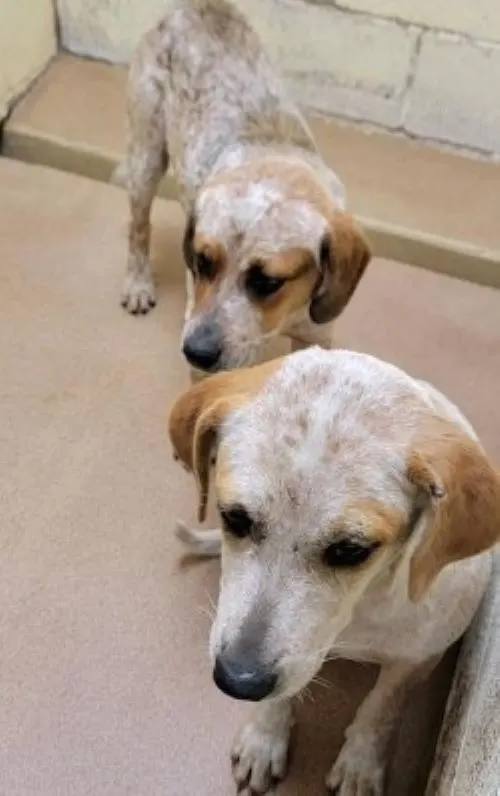
There’s something truly beautiful about the way street dogs take care of each other. When Bonnie and Clyde were rescued by the good people of Stillwater Animal Welfare, from Oklahoma, they refused to part ways.
According to the team, rescue dogs typically separate at the shelter as they become more independent and comfortable in new circumstances, but that just wasn’t the case with these two.
They dazzled everyone with pure loyalty and love for each other, and the team was so happy to have them as a pair.
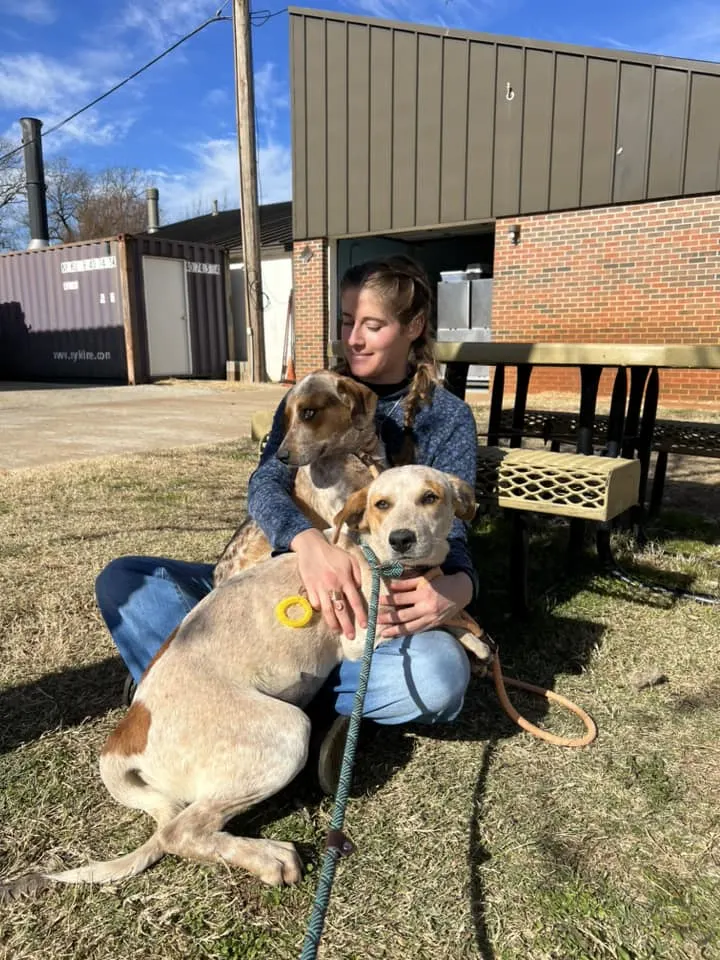
The history of Bonnie and Clyde is as vague as it could be. The dogs were picked up from the streets, where they were found in a not-so-great condition. Both of these dogs suffered from heartworms, and they required extensive medical care.
The good news was – this bonded pair responded to treatments amazingly, and within just a few days, they started coming out of their shell.
Bonnie and Clyde soon became shelter lovebugs. They showered everyone with tons of love, thanking the team with endless kisses for a new chance at life.
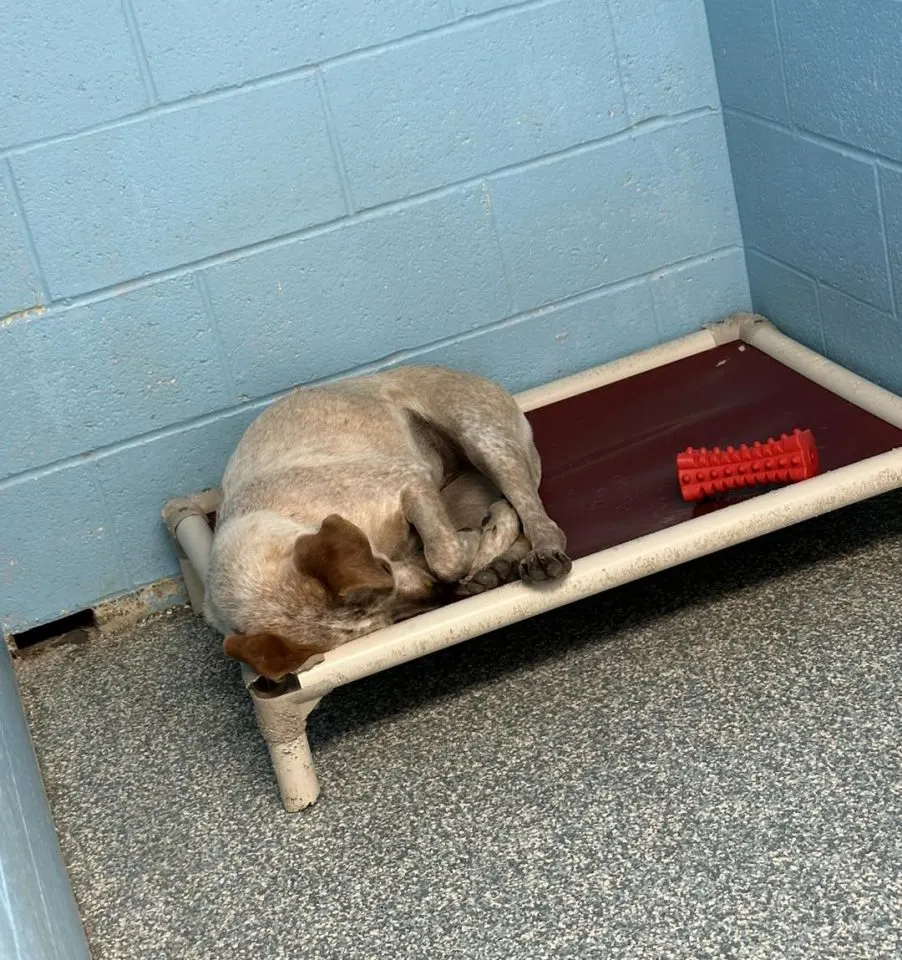
Bonnie did amazingly the first month at the facility. This is what her team wrote on Facebook about her:
“Bonnie came to us as a stray with her brother and was never claimed…She is about 45 pounds. Bonnie is heartworm positive. She is good with other dogs so far and loves food.”
However, just when she had completely opened up and started enjoying the new environment with her sibling, Clyde got adopted. He went to an amazing home and a loving family, leaving his sister heartbroken.
Once he was gone from the shelter, Bonnie completely shut down. She lay in her kennel with absolutely no interest in anything, hoping her brother would come back.
“Bonnie is all alone since her brother got adopted, and she misses having a sibling to cuddle with,” SAW wrote on Facebook.
Happily Ever After
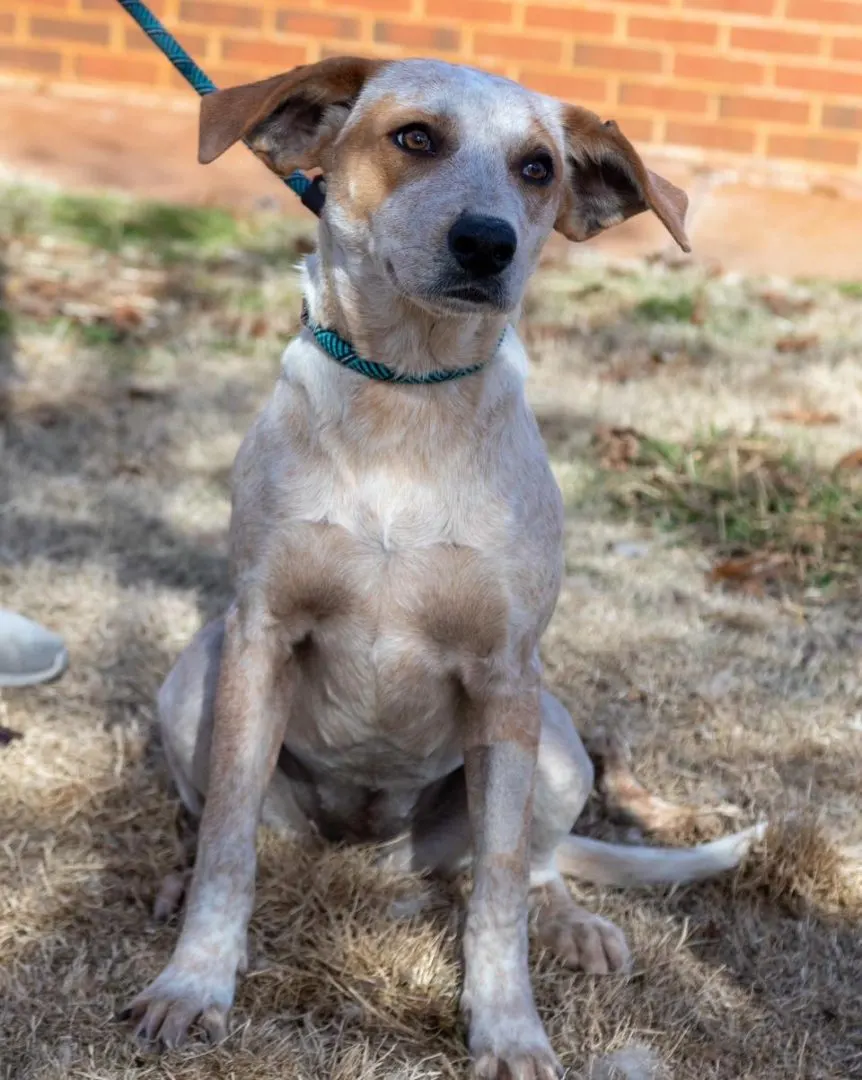
Bonnie had a hard time adapting to a life without Clyde. She missed her sibling so much, and she had no idea how to move on. But then, the magic of December kicked in!
Right around the corner, an amazing woman named Brayden Routh arrived at the shelter, wanting to meet Bonnie and provide her with an amazing home.
The two formed a bond right off the bat. It was evident that Bonnie was really excited to meet her new momma. In a way, it was as if she was waiting for Brayden this entire time to take her home. And, off they went!
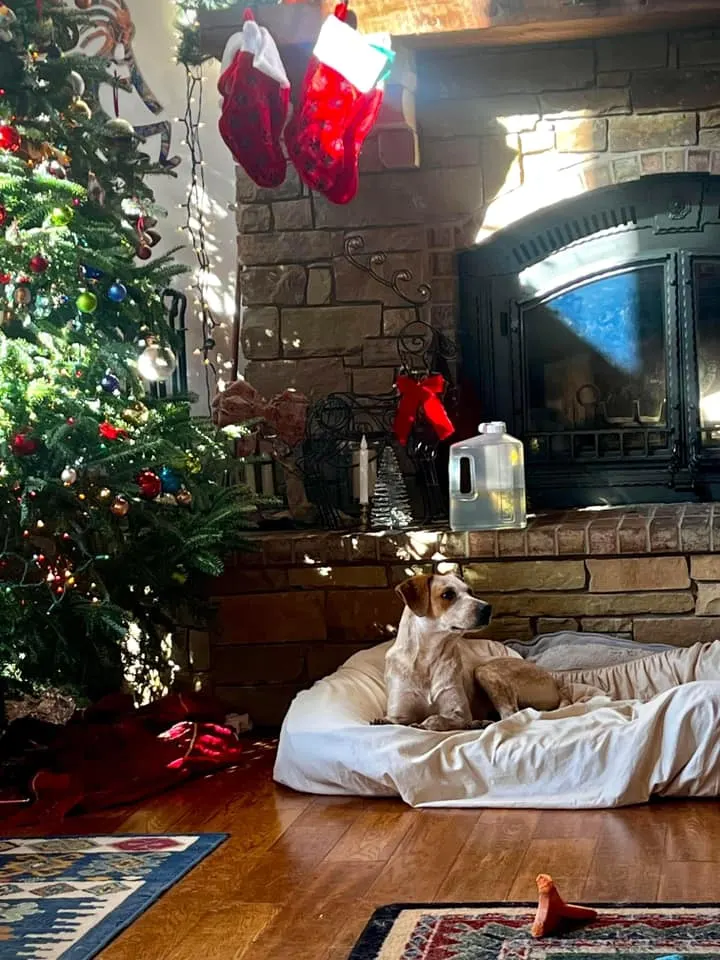
Bonnie finally got a wonderful family and a cosy home where she could exhibit her personality to the fullest. She even got a big sister – a Blue Heeler named Tally.
In just a few days, Bonnie’s life completely changed for the better. She blossomed into a brand-new girl who is finally ready to take on new adventures. And, Tally was there to assist her!
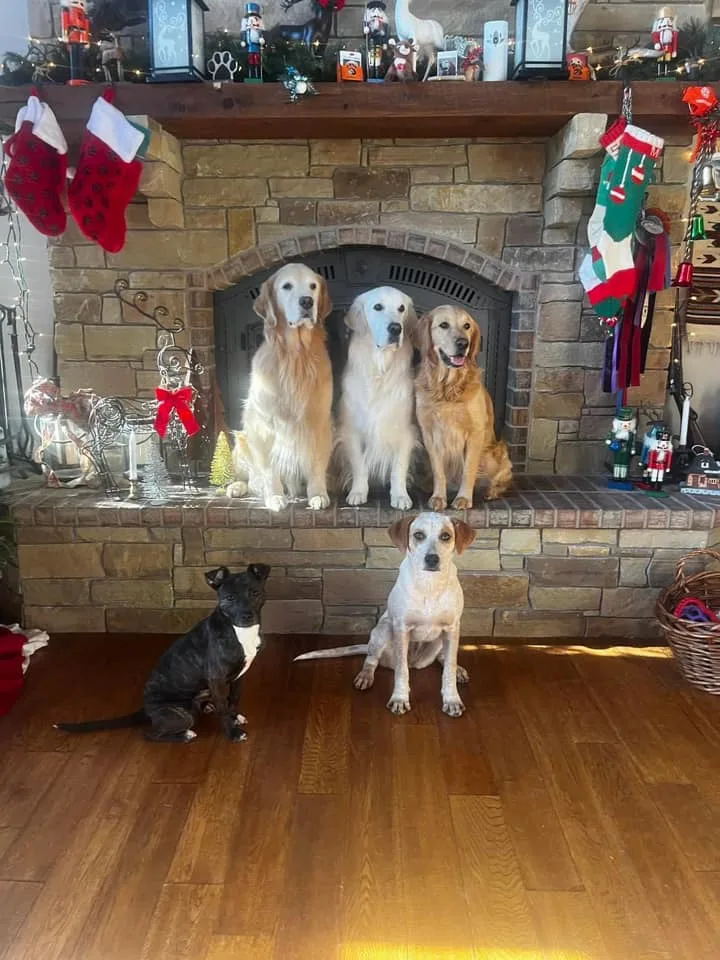
The first few days were quite active for this street girl. She met a lot of new friends, and immediately became the family sweetheart. Her true spirit was on display after so long, which made her momma happy.
“She’s in great hands! Tuckered out from a big day of making new friends,” her new mom wrote in a comment on Facebook.
Once a heartbroken girl who had a hard time moving on with her life, today, Bonnie couldn’t be happier!
If you’ve ever been snuggled up with your furry friend and suddenly heard strange gurgling or rumbling sounds coming from their belly, you’re not alone. Dogs’ stomachs making noises can be puzzling, leaving you wondering what’s going on in there. As a seasoned dog enthusiast, you know that our canine companions have a knack for keeping us on our toes with their quirky behaviors.
When your dog’s tummy starts its symphony of sounds, it’s like a mystery waiting to be unraveled. From growls to grumbles, these noises can signal various things, keeping you guessing about what might be causing them. As someone who values the well-being of your four-legged pal, understanding the reasons behind these stomach serenades is key to ensuring they’re happy and healthy.
Understanding Your Dog’s Stomach Noises
The Basics of Digestive Sounds
Your dog’s stomach can make various noises as part of the digestive process. These sounds are typically normal and indicate that the digestive system is functioning as it should. When your dog eats, drinks, or moves, the movement of food and gas in the stomach can produce audible sounds. It’s important to remember that some level of noise is expected in a healthy digestive system.
When Should You Be Concerned?
While most stomach noises are normal, there are times when you should pay closer attention. If your dog’s stomach sounds are accompanied by other symptoms like bloating, diarrhea, vomiting, or signs of discomfort, it could indicate an underlying issue. Persistent loud gurgling or rumbling sounds, especially if they occur frequently, could also be a cause for concern. In such cases, it’s best to consult your veterinarian for a proper evaluation and diagnosis.
Common Causes of Stomach Noises in Dogs
Hunger-Related Rumbling
When your dog’s tummy is making noises, it could simply be because they are hungry. Just like in humans, the digestive system in dogs can make sounds when they haven’t eaten for a while. This hunger-related rumbling is usually harmless and nothing to worry about, especially if your dog is due for their next meal.
Digesting a Meal
After enjoying a meal, your furry friend’s digestive system kicks into action to break down the food. The noises you hear could be the result of this digestion process happening in their stomach. It’s like a symphony of digestion as the food is being processed, and these sounds are typically normal and indicate that everything is working as it should.
Gas and Bloating
Gas and bloating can also cause audible stomach noises in dogs. Just like in humans, when dogs have gas in their digestive system, it can lead to gurgling or rumbling sounds. Bloating can further exacerbate this issue, causing discomfort for your pet. If you notice excessive gas or persistent bloating accompanied by stomach noises, it’s essential to consult your vet to rule out any underlying issues.
When Stomach Noises Are a Sign of Trouble
Intestinal Parasites
Intestinal parasites, such as worms, can cause stomach noises in dogs. These parasites can disrupt the normal digestive process, leading to gurgling sounds in the stomach. If your furry friend has stomach noises accompanied by symptoms like weight loss, vomiting, or changes in appetite, it’s essential to consult your vet. A fecal examination can help identify and treat any parasitic infections effectively.
Dietary Indiscretion
Dietary indiscretion, which includes eating trash, spoiled food, or consuming something indigestible, can result in stomach noises in dogs. If your pup has ingested something unusual and experiences stomach noises along with symptoms like lethargy, abdominal pain, or diarrhea, it’s crucial to seek veterinary care promptly. Dietary changes may be necessary to alleviate the issue.
Serious Digestive Disorders
In some cases, stomach noises in dogs can be a sign of more serious digestive disorders such as gastritis, inflammatory bowel disease, or pancreatitis. These conditions can cause persistent stomach gurgling, along with symptoms like frequent vomiting, bloody stool, or abdominal discomfort. If you notice these signs in your pet, don’t delay in contacting your vet for a thorough evaluation and appropriate treatment.
Remember, while occasional stomach noises are normal, persistent or concerning symptoms require attention from a professional. Monitoring your dog’s health closely and seeking prompt veterinary care when needed can help ensure your canine companion stays happy and healthy.
How to Respond to Your Dog’s Stomach Noises
Monitoring Your Dog’s Symptoms
When your dog’s stomach is making noises, pay attention to any accompanying symptoms. Watch for signs like bloating, diarrhea, vomiting, or weight loss. These symptoms could indicate a more serious issue that needs veterinary attention. Keep an eye on your dog’s behavior and overall well-being to ensure prompt action if needed.
Dietary Adjustments and Treatments
Consider making dietary adjustments to help ease your dog’s stomach noises. Try feeding smaller, more frequent meals to aid digestion. Introduce easily digestible foods or consider specialized diets recommended by your vet. Avoid giving table scraps or foods that could exacerbate digestive issues. Proper hydration is also crucial to maintain your dog’s digestive health.
When to Visit the Veterinarian
If your dog’s stomach noises are persistent or accompanied by concerning symptoms like abdominal discomfort, it’s time to visit the veterinarian. Rapid weight loss, continuous vomiting, or signs of distress should not be ignored. Your vet can perform a thorough examination, run diagnostic tests, and determine the underlying cause of the stomach noises. Early intervention can prevent any serious health issues and keep your furry friend happy and healthy.
Preventing Excessive Stomach Noises
Regular Feeding Schedule
Ensure your dog maintains a regular feeding routine to help prevent excessive stomach noises. Feeding at the same times each day can promote healthy digestion and reduce the chances of loud stomach sounds. Consistency in meal times provides your dog with a predictable eating schedule, which can aid in preventing digestive disturbances that may lead to noisy stomachs.
Choosing the Right Diet
Selecting a suitable diet for your furry friend is crucial in preventing stomach noises. Opt for high-quality dog food that is easily digestible and meets your dog’s nutritional needs. Avoid sudden changes in diet, as this can cause stomach upset and result in noisy digestion. Additionally, consider consulting your veterinarian to determine the best diet for your dog’s specific health requirements.
Preventing Access to Garbage and Toxins
Limit your dog’s access to trash and harmful substances to prevent stomach issues that can lead to noisy digestion. Dogs are curious creatures that may ingest toxins or spoiled food, leading to gastrointestinal problems and audible stomach sounds. Keeping garbage bins secure and ensuring toxic substances are out of reach can help safeguard your dog’s digestive health and reduce the occurrence of loud stomach noises.
Conclusion
So, there you have it – a rumbling tummy in your furry friend is usually nothing to worry about. From hunger pangs to dietary choices, your dog’s stomach noises can be quite normal. However, it’s crucial to keep an eye out for any concerning symptoms like weight loss or vomiting. By sticking to a regular feeding schedule, providing a balanced diet, and keeping harmful substances out of reach, you can help minimize those noisy tummy sounds. Remember, when in doubt, always consult with your vet to ensure your pup stays happy and healthy.
Frequently Asked Questions
What are the common causes of stomach noises in dogs?
Stomach noises in dogs can be caused by hunger, normal digestion, gas, bloating, intestinal parasites, dietary indiscretion, and digestive disorders. These noises are usually harmless but monitoring for other symptoms is important.
When should I seek veterinary attention for my dog’s stomach noises?
If your dog experiences weight loss, vomiting, or severe discomfort along with stomach noises, it’s crucial to seek prompt veterinary attention. These symptoms could indicate underlying health issues that require professional diagnosis and treatment.
How can I prevent excessive stomach noises in my dog?
To reduce noisy stomach sounds, maintain a consistent feeding schedule, choose a proper diet, and keep your dog away from garbage and harmful substances. Consulting a vet for dietary recommendations and ensuring a safe living environment are vital for your dog’s well-being.
[no_toc]

Hey there, I’m Janet Brooks, a dog-loving student from California. I’m all about helping pups in need, especially those without homes. Me and my awesome friends work together to give shelter and love to stray dogs. Oh, and I also write blogs about dogs to share helpful info.